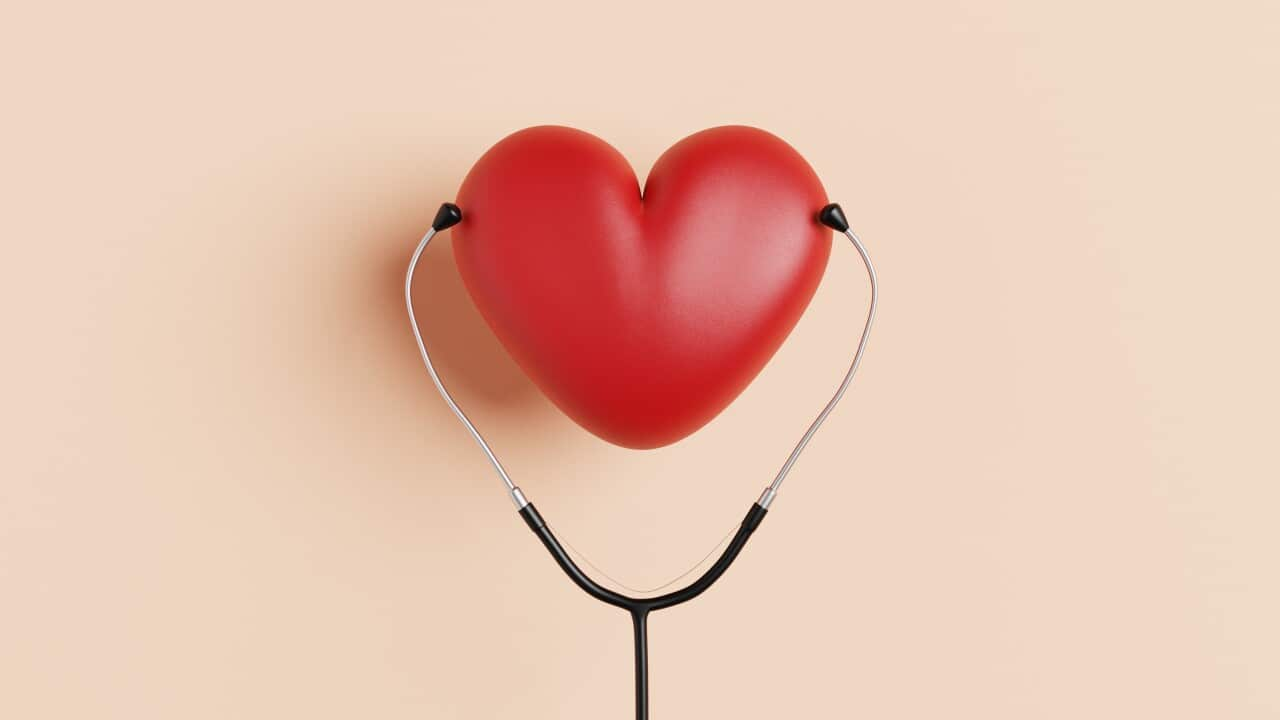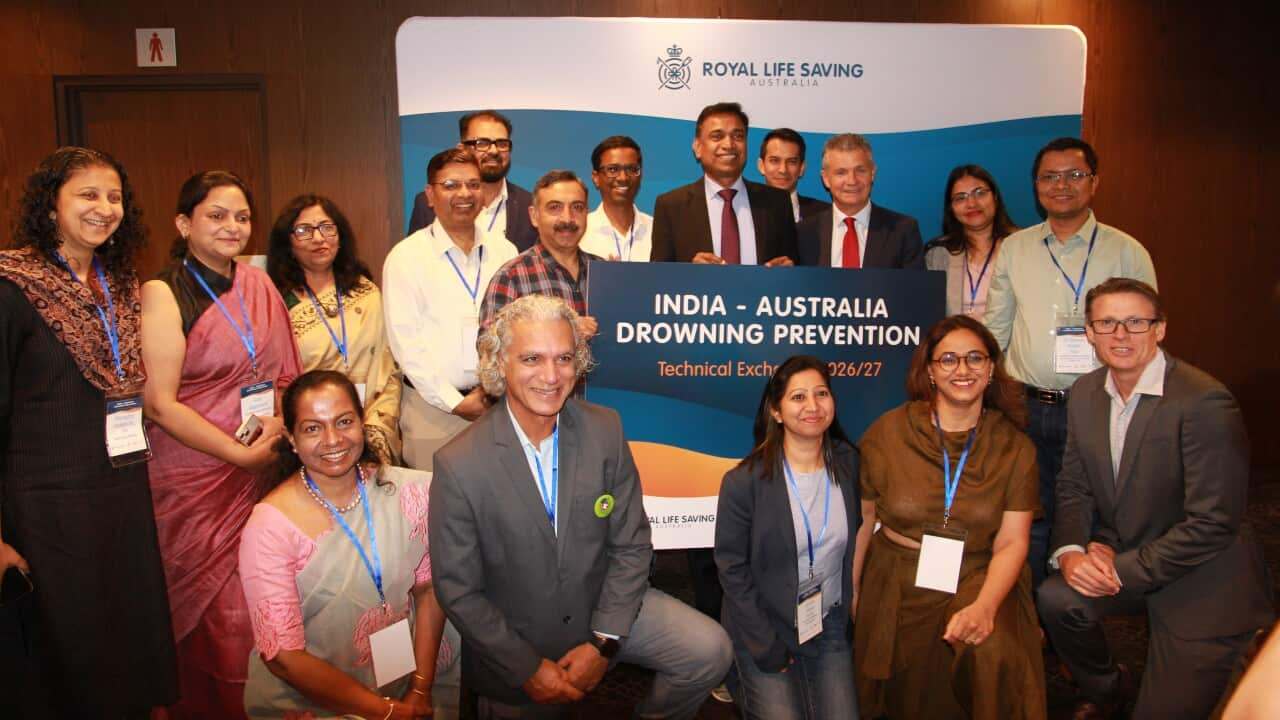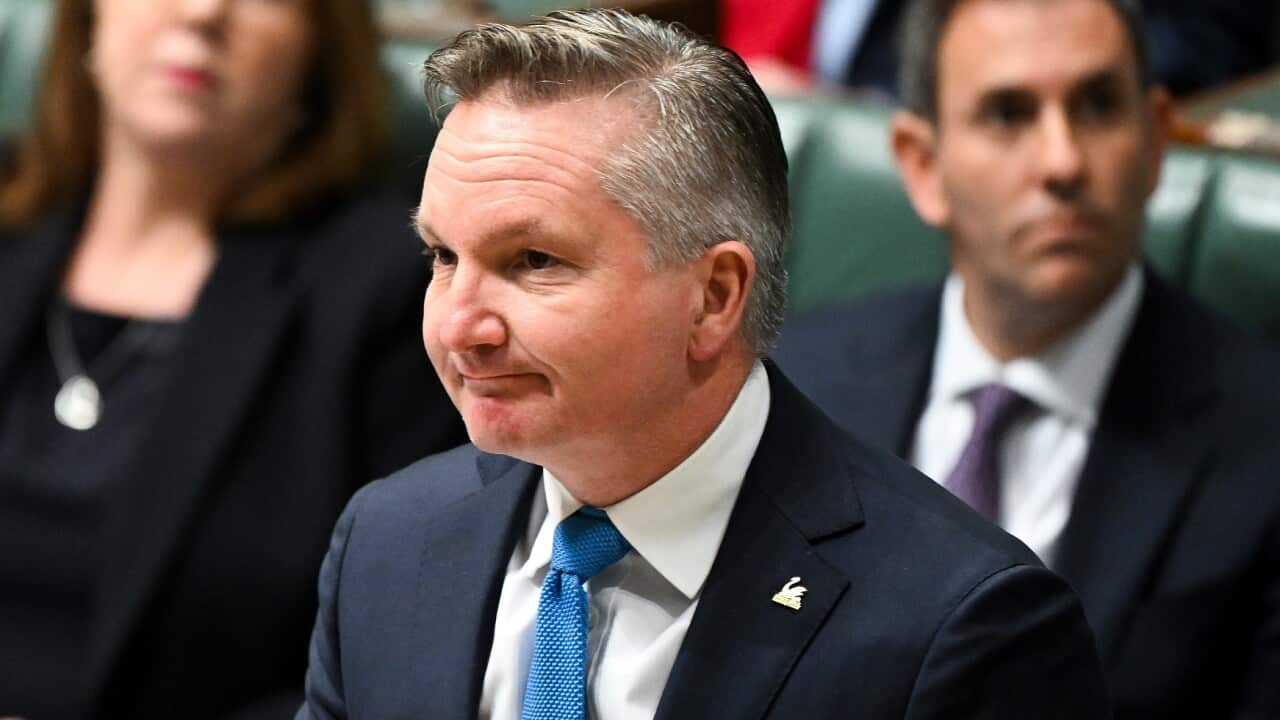Listen to Australian and world news, and follow trending topics with SBS News Podcasts.
TRANSCRIPT
Tanya Hall is the founder and CEO of an advocacy group in Perth known as hearts4heart.
"So I was diagnosed with congenital heart disease at six months old and I had my first heart operation at nine. But when I was 17, I started having symptoms of atrial fibrillation. And after atrial fibrillation progressing over 10 years I was then diagnosed, and had treatment to improve my symptoms and quality of life."
Tanya is one of the more than half a million Australians who have atrial fibrillation.
Cardiologist Dr Tomos Walters from the Queensland Cardiovascular Group in Brisbane says it's a lifelong, progressive condition.
"Atrial fibrillation or AF is a disease in which the normal, regular rhythm is replaced by electrical chaos in the atria, the filling chambers at the top of the heart. That then makes the ventricles, the pumping chambers, beat in an irregularly irregular manner, which significantly reduces the mechanical efficiency of the heart."
Dr Walters says atrial fibrillation - or AF - can affect different people in different ways.
"There are some people who just don't feel it. There are some people who are incapacitated by it, and most people are somewhere in between. The symptoms include palpitations, chest pain, breathlessness, dizziness, fatigue."
But it's those varied impacts that have advocates and medical professionals concerned.
Atrial fibrillation is already the leading cause of cardiovascular hospitalisations, resulting in a direct annual cost of approximately $1.63 billion.
"AF imposes very large burden on the Australian healthcare system. It's one of the most common reasons for emergency department presentation, for hospital admission."
AF is also responsible for an estimated one in four strokes and a higher risk of dementia.
Little wonder then that Dr Walters has called it one of the largest, and most pressing, public health epidemics, as the population grows older.
"The things we worry about in a patient with AF include the risk of having a stroke; the risk that the AF, if left untreated, can start to affect their heart structure and function. It can cause heart failure in some patients. And of course, we worry about the symptoms and the effect on quality of life."
Part of the concern is that an estimated 30 percent of people with AF don't even know they have the condition.
Geelong mother of two Justine Martin says she found out by chance.
"I was diagnosed with multiple sclerosis in 2011, and I developed this butterfly feeling in my chest, which I put down to being MS. I got rushed to hospital with a really bad headache, and they put me on an ECG machine and discovered that my resting heart rate was 155 beats a minute, which then led to the diagnosis of AF."
The concern for advocates is that those who don't know they have AF won't be able to take preventative action to stop the disease from progressing, or avoid complications.
Dr Emily Kotschet is a cardiologist at Holmesglen Private Hospital in Melbourne.
She says for those that do eventually have symptoms, some might not realise what they are feeling is actually coming from the heart.
"So one in three Australians didn't want to present when they had their first symptoms and waited for four episodes before they sought medical attention… often waiting to see if it'll just settle on its own, or maybe dismissing the significance of it."
She says that's a particular issue for women - for whom cardiac issues don't necessarily look the same as they might for men.
"So women often present with different symptoms, so maybe not classic irregular palpitations. They might feel short of breath or just fatigue, unable to do their usual activities."
That lack of awareness about what heart problems might look like has been a longstanding concern.
In 2023, Hearts4heart did a comprehensive nationwide survey that found one in three Australians (or around 6.7 million people) were completely unaware atrial fibrillation existed.
A Boston Scientific commissioned survey from 2025 has suggested very little has changed.
Tanya Hall says it's best to not wait to talk to your GP about your concerns.
"Be heart smart. If there’s a family history of heart disease, if you’re having any symptoms, or you’re over the age of 50, then please go and get your heart checked."
Back in Perth, Tanya Hall says her condition is now under control.
She says it's time for awareness of atrial fibrillation to be raised, so that it helps everyone.
"I’m living really well with atrial fibrillation. The most important thing is that you're diagnosed and treated like I am, and you can live a fulfilled life."













